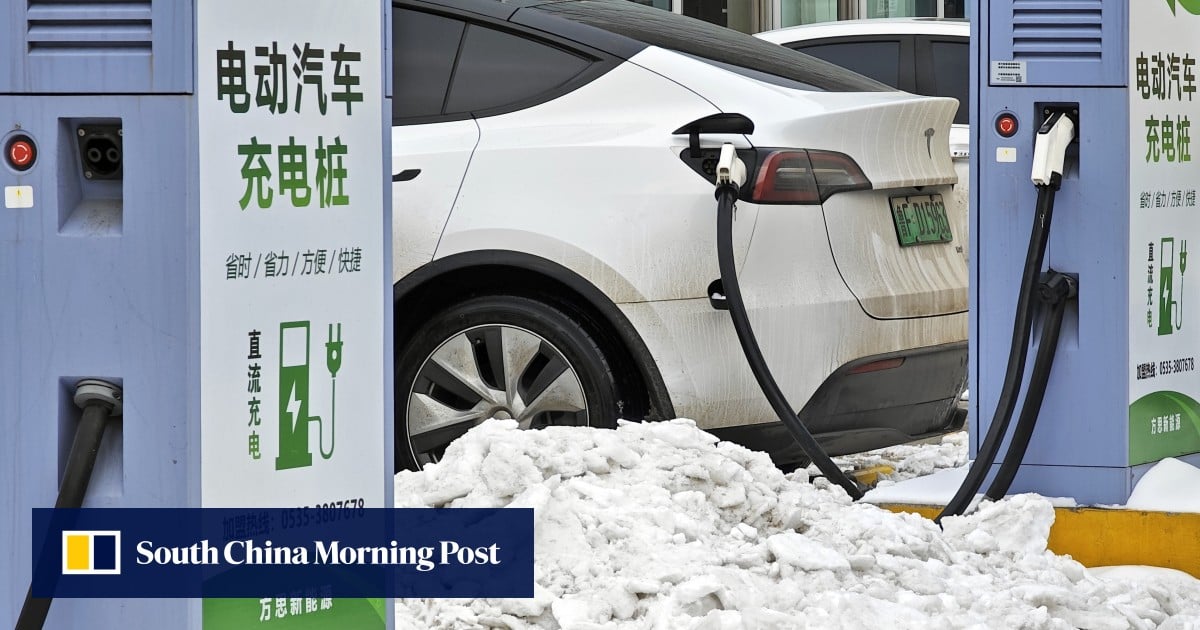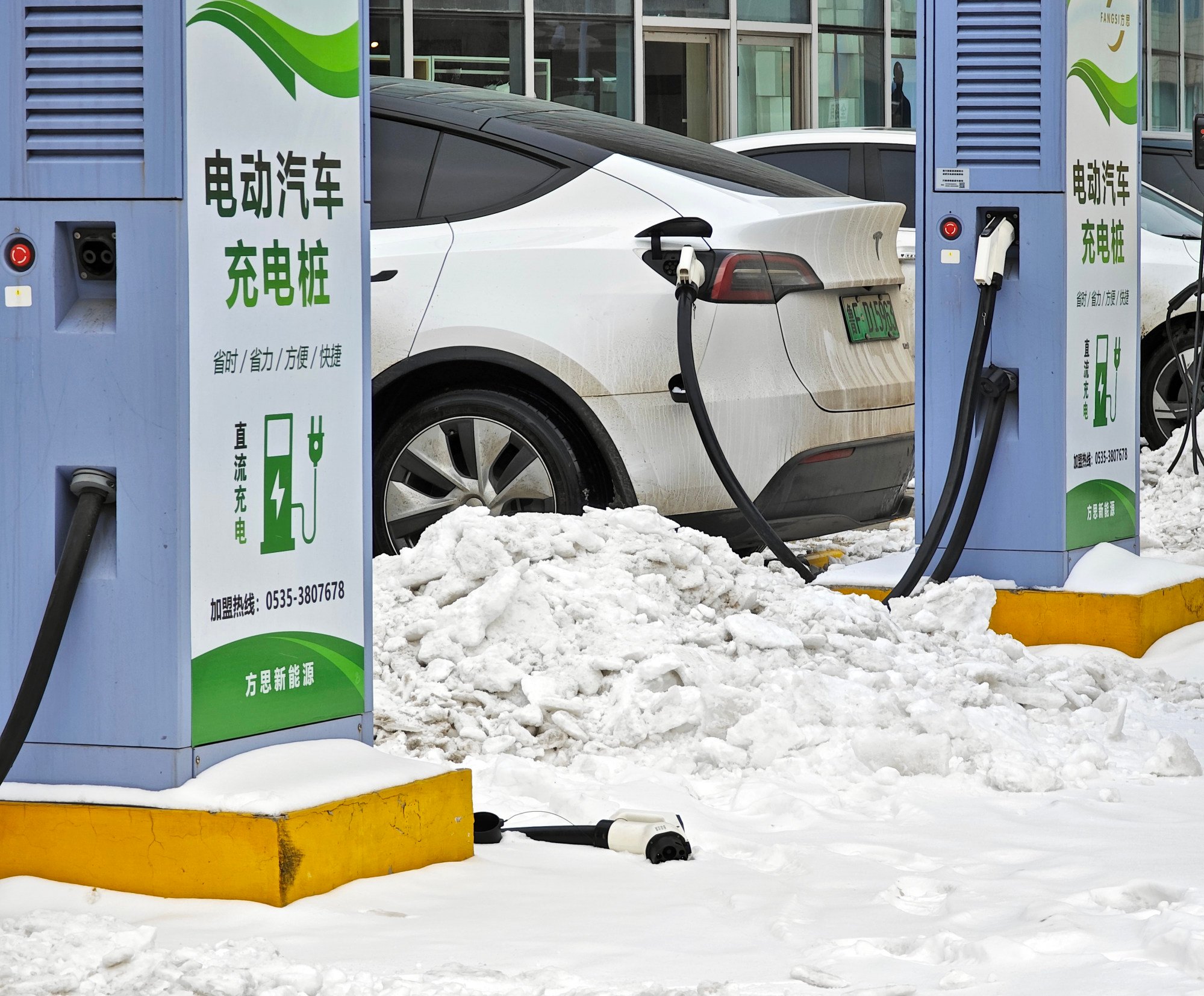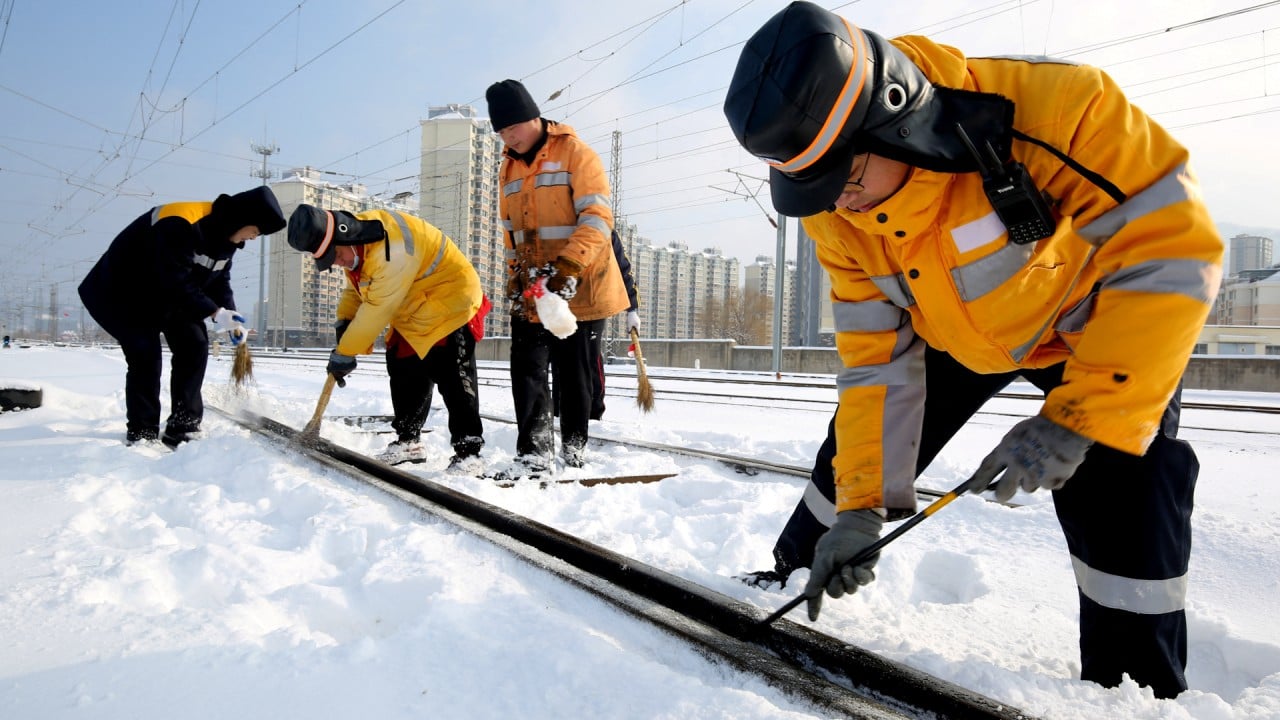
08 Mar China’s electric vehicle infrastructure falls short, as Lunar New Year holiday woes of EV drivers in Hainan and elsewhere showed
However, the biggest problem for NEV drivers this Lunar New Year was the lack of charging stations.
Chinese scientists produce a powerful winter-proof lithium battery
Chinese scientists produce a powerful winter-proof lithium battery
“During this year’s Spring Festival [Lunar New Year holiday], car owners encountered difficulty in charging, with few charging stations on highways but more new energy vehicles,” says charging expert David Zhang Xiang, visiting professor at Huanghe Science and Technology College. “This is an old problem; it exists every year on the May Day, National Day and Spring Festival holidays.”
Many parts of China, particularly Hubei and Anhui provinces, experienced heavy snow just before the holidays, which added to the problem. EV batteries do not perform well in the cold, and range can be reduced by as much as a third when a car’s heater is on. The higher speeds common on highways also shorten vehicles’ range.
This meant that the average EV motorist over the Lunar New Year would have needed to stop every two to three hours to recharge. Most drivers would have spent 30 minutes at each charger, and that’s after having waited in any queues that had formed to use the machines.

One blogger reported on Weibo on February 8 that dozens of EV drivers were waiting to charge at Dasheng Services, in Hunan province, with tempers strained by some trying to jump the queue.
One of the unluckiest stories on social media was that of a woman who drove from Shenzhen to Wuhan and ended up having to spend the night in a stranger’s car while hers stood just five metres away from a charger.
Having left home on February 1 she reached Hubei province on February 3, only to be confronted by blizzards. Running out of power, she found a charger but couldn’t get close enough to use it because of a large snowdrift.
The following morning, she borrowed a shovel to dig a path to the charger before finally getting enough power to reach Wuhan.
“Car owners had to spend the night outdoors, and new energy vehicles consumed a lot of electricity when the heaters were turned on,” says Zhang.
Currently, state-owned utility State Grid operates 90 per cent of the charging infrastructure on highways, says Zhang, while operator TELD has some facilities, particularly in Jiangxi and Guizhou provinces. Many of the State Grid charging facilities were installed in 2015 and have not been upgraded to offer the higher charging speeds that newer NEVs are capable of.

Mobile chargers were also rolled out by China Southern Power Grid to service centres in Guangxi, Yunnan, Sichuan and Guangdong provinces. Each could charge two or three cars at a rate about 50 per cent faster than that of fixed high-speed chargers.
According to chatter on Weibo, many Nio owners tried to take advantage of the offer. Li Auto CEO Li Xiang responded by saying that all drivers were welcome, irrespective of what type of EV they drove, but the owners of brands other than Li had to pay as normal during the holiday period.
Until recently, Li Auto sold only extended-range EVs (EREV) cars, which use a petrol engine to recharge the battery when it runs low. The Lunar New Year woes are likely to increase sales of EREVs.
In a post on Popular Science China’s WeChat account, blogger Brother Neck noted that the trend is already developing, and that over the past year, EREV sales rose from 6 per cent of total monthly NEV sales to 11.2 per cent.
There may have been challenges on the road this Lunar New Year, but all drivers – in NEVs or petrol-powered vehicles – benefited from the waiving of road tolls during the holiday, which brought its own consequences.
“For me, the biggest obstacle was congestion, not charging difficulties,” says lawyer Huang Qi, who managed to drive his Model Y Tesla from Shanghai back to Zhoushan, Zhejiang province (a distance of 290km, or 180 miles), on a single charge.

